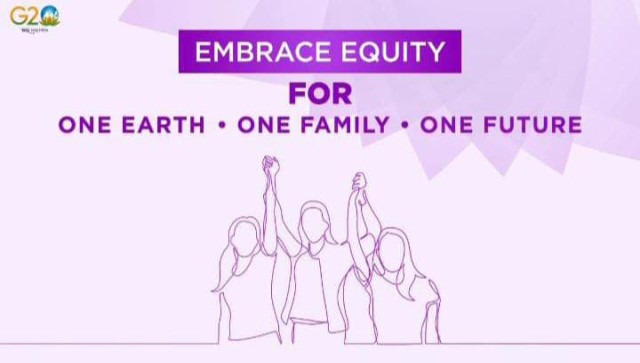Over the past few years, India has been making great strides in the world of women’s rights and gender equality with the BJP-led Modi government making female empowerment an integral part of its agenda. During his 75th Independence Day speech, PM Modi in fact, put forth his bold vision, highlighting the vital role that “Nari Shakti” would play in India’s socio-economic developmental journey in the coming 25 years. And while, unfortunately, most governments have come and gone despite promising the moon and stars to women, the BJP government—from the very beginning—has been undertaking rigorous efforts to place women’s issues at the forefront, thereby, rolling out schemes and policies to ensure equality and freedom for the Indian women. These include noteworthy initiatives like ‘Beti Bachao Beti Padhao’ and ‘Sukanya Samriddhi Yojana’, which sought to challenge pre-existing attitudes towards birthing and the education rights of girls. Similarly, the construction of over 100 million household toilets under the Swachch Bharat Mission has helped in improving the sanitation and hygiene facilities for a large number of women. On the other hand, financial inclusion schemes, such as the Pradhan Mantri Jan Dhan Yojana (PMJDY) have widely supported the economic empowerment of women and provided them access to services such as savings accounts, need-based lending, remittances services, insurance, etc. Ever since its introduction, over 460 million PMJDY bank accounts have been established with nearly 56 per cent being owned by women. While, these are just a few examples, there exists many other schemes such as Mission Poshan 2.0; Mission Shakti; and Mission Vatsalya; the Udyam Sakhi portal; POSHAN Abhiyaan, PM Mudra YPM MUDRA Yojana, etc.—that have together demonstrated BJP’s willpower to uplift women and make a real difference along with bringing about a shift in the paradigm from women’s development to women-led development. It is this visionary zeal—to empower women and to bring about a change—that has evidently been reflective even in India G20 engagements. For instance, in 2021, India joined the ‘Gender Equality Ministers of the G20’ in committing to promote gender parity and empowerment of women through cooperation and coordination at all relevant forums. Similarly, at the time of taking charge of the G20 in Bali, PM Modi stated “India will give priority to Women-led development in its G20 agenda.” Women’s economic empowerment is therefore—and rightfully so—at the heart of India’s G20 agenda. And given the significant steps that India has undertaken towards gender mainstreaming in policy actions across various spheres, it perhaps presents a bold case for leading the way on gender equality and giving further impetus to women’s economic empowerment. To mainstream gender considerations into G20 discussions, the Women 20 (W20) under India’s leadership has identified key priority areas that predominantly revolve around women’s entrepreneurship, grassroots women’s leadership, bridging the gendered digital divide, education, skill development and climate change. The chair of W20 India is in fact, Sandhya Purecha—a woman—who is also the chairperson of the Sangeet Natak Academy. And, with an aim to ensure greater representation, the W20 India has adopted a decentralised approach by seeking to include voices from the rural, slum and tribal areas, which will help incredibly in bringing forward the lived realities of disadvantaged women. W20 India can therefore serve as an excellent forum to not only translate discussions into policies and commitments that foster gender equality but also to integrate grassroots knowledge into the wider narrative. In another instance, Minister of Women and Child Development, Smriti Irani during the inception meeting of G20 Empowerment and progression of the Women’s Economic Representation (EMPOWER) held in February 2023, announced its vision to “be the most inclusive and action-driven alliance among businesses and Governments to accelerate women’s leadership and empowerment across the G20 countries.” All these examples, have time and again reiterated India’s deliberate choice to reduce structural barriers to women’s participation and send a strong message about its seriousness towards global responsibility, which is inclusive of women. Thus, going forward, the BJP government—during its G20 tenure—should perhaps, work on furthering its experience and ambition. It should turn towards devising specific and time bound commitments that will help in bringing about effective outcomes for gender equality; identify common problems, which will provide a stronger reason for member states to collaborate on women’s issues; and, make the need for an intersectional gender lens a norm at the G20 meetings. The writer is a Visiting Fellow with the Observer Research Foundation. Some of her works have appeared in South China Morning Post, The Hindu, Firstpost, Hindustan Times, The Diplomat, The Toronto Star, among several others. She tweets at @akankshakhullar. Views are personal. Read all the Latest News , Trending News , Cricket News , Bollywood News , India News and Entertainment News here. Follow us on Facebook, Twitter and Instagram.
The Modi government has demonstrated the willpower to uplift women and make a real difference, along with bringing about a shift in the paradigm from women’s development to women-led development
Advertisement
End of Article


)

)
)
)
)
)
)
)
)



